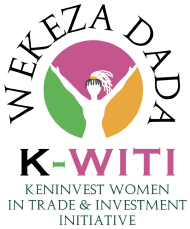The United States has given the strongest indication yet that the Joe Biden administration is committed to completing negotiations on the Free Trade Agreement (FTA) with Kenya, which started during President Donald Trump’s tenure.
Secretary of State Antony Blinken, who made a virtual trip to Kenya, alongside Nigeria, on Tuesday, told journalists the US was keen on increased trade and investment and that the FTA was under “very, very active review”.
The trade deal, which was put on hold following a change in the US administration in January, is seen as a pointer to how America will engage with Africa, especially in the face of China’s growing influence in the continent. There had been fears that the deal would be abandoned if the democrats won the election.
Mr Blinken said the new US Trade Representative Katherine Tai, who was recently confirmed to the position, had to hit the ground running, “and she is running very fast.”
“She had a very good initial conversation with her counterpart I think just a couple of weeks ago in which they discussed the free trade agreement. And what we’re doing right now is just reviewing the negotiations, making sure we understand the full track record, and we’re going to be in close touch with our partners in Kenya on that moving forward,” he said.
Kenya hopes to sign the deal before the expiry of the current arrangement under the Africa Growth and Opportunity Act (Agoa), which allows 40 sub-Saharan African countries to export up to 6,000 products to the US without tariffs or quotas until 2025.
Not a race to the bottom
Bilateral negotiations between Kenya and the US began on July 7, last year, five months after Mr Trump announced that his country intended to initiate trade agreement negotiations with Kenya following a meeting at the White House with President Uhuru Kenyatta.
In response to the China question, Mr Blinken described the US approach to engaging with African states as a “race to the top, not a race to the bottom”.
“We think that one of the benefits that we bring when we’re engaged with partners in Africa is that we’re really investing in countries in question and in the people. We want to make sure that as investment goes forward, wherever it’s coming from, it’s done to the highest standards,” he said.
While he did not mention names, it was obvious that Mr Blinken was hitting at China when he said: “In some instances, other countries that make investments in fact load a lot of debt on the countries getting the so-called investment, and that debt becomes a trap and a huge burden, and the country either has to pay it back by taking resources away from other parts of its budget that benefit people or it can’t pay it back and then the country that’s made the debt, issued the debt, suddenly owns whatever it was investing in. That turns out not to be a good thing.”
Other countries, he added, come in with big projects, but they bring in their own workers instead of relying on locals who should get the benefits of working on these projects. Sometimes the standards when it comes to protecting the rights of workers on these projects are insufficient or the environmental standards are not respected.
“When we work in partnership, when we make these investments, we do it in a way that does not overwhelm countries with debt, does not undermine the environment, does not challenge the rights of workers, et cetera,” he said.
Source: Business Daily Newspaper.








